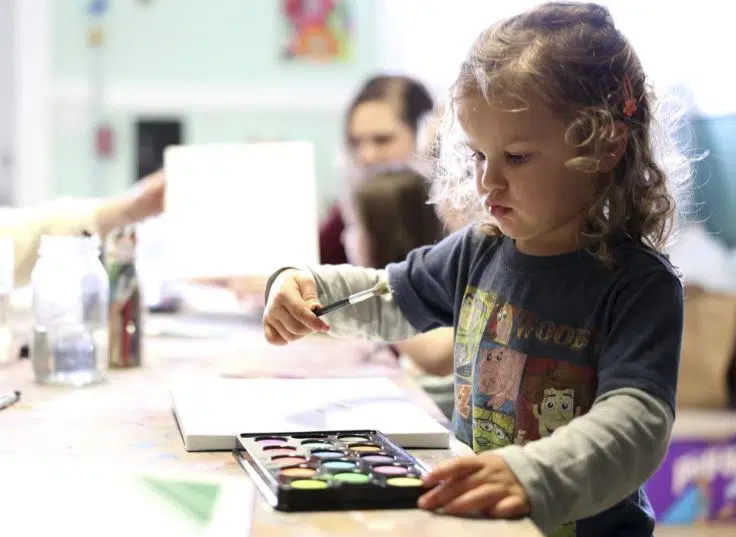
(AP Photo)
BISMARCK, N.D. (KFGO) – Prior to the start of the session, there was broad bipartisan agreement that child care was one of the most critical issues North Dakota’s 68th Legislative Assembly needed to address.
“Everyone acknowledges that child care is probably the single biggest workforce challenge we have. Finding the combination of solutions – because there’s not just one – has been the challenge,” said Senate Minority Leader Kathy Hogan.
Bills to simplify criminal background checks for hiring child care workers, child care tax credits for middle income families, and increasing child care assistance for low income families have all passed in the Senate in recent weeks – but advocates say the most important vote may have come Tuesday, when a bill that provides direct assistance to child care providers passed the Senate by a narrow margin of 25-22. The Child Care Stabilization Program helps increase child care worker pay through state-supplemented wages.
In a statement applauding the bill’s passage, the North Dakota Child Care Action Alliance (NDCCAA) says with the state’s child care businesses struggling to stay open, they are often left with little choice but to pay their workers low wages. The NDCCAA says many of the state’s child care workers earn poverty-level wages, with the median wage across North Dakota for a child care worker barely hovering above poverty level for a family of three, at $11.19 an hour.
Hogan’s only concern is that the amount allocated for the stabilization program in SB 2301 – just over $36 million in the next biennium – isn’t enough.
“I think if we don’t put $150 million in, we could easily lose 20-30% of our child care providers within the next two years,” Hogan said.
Still, Hogan says the progress is promising.
“These are radically new concepts. So they’re hard. But people are recognizing that we have to do something, and I think people are committed to trying to do this,” she said.
The Child Care Stabilization Program bill’s bipartisan sponsors are Senators Ryan Braunberger, Sean Cleary, Curt Kreun and Representatives Karla Rose Hanson and Alisa Mitskog.
The Senate package of child care proposals now moves to the House for consideration.




Comments